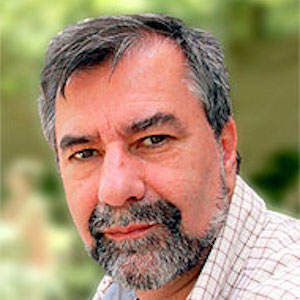Paulo Artaxo is Professor of Environmental Physics and Head of the Department of Applied Physics at the University of São Paulo. He is an expert on the climatic effects of aerosols, particularly in Amazonia.
SÃO PAULO – Last month, a deeply divided Brazil voted to elect its next president. Faced with a choice between Fernando Haddad of the leftist Workers’ Party and the right-wing extremist Jair Bolsonaro, Brazilians chose the extremist – an outcome that will have far-reaching consequences for the environment, among other things.
With solid backing from the wealthiest 5% of Brazilians and rural landowners, Bolsonaro secured broader popular support by playing on people’s prejudices and fears. In his campaign, he targeted vulnerable groups and pledged to reduce or eliminate protections for minorities, women, and the poor. Meanwhile, he intends to loosen Brazil’s restrictive gun laws, claiming that allowing average citizens to arm themselves will stem rising crime.
As for the environment, Bolsonaro’s plans can be summed up in one word: exploitation. For starters, he wants to reduce or eliminate environmental protections in the Amazon, the world’s largest tropical rainforest. And he intends to reduce substantially the protection of indigenous lands belonging to the descendants of the Amazon’s original inhabitants. He will ease environmental restrictions on the use of pesticides and on licensing for infrastructure development.
“Where there is indigenous land,” Bolsonaro once said, “there is wealth underneath it.” With that in mind, he has declared that no more indigenous reserves will be demarcated, and existing reserves will be opened up to mining.
Bolsonaro’s agenda will hasten environmental degradation dramatically. Imazon, a Brazilian NGO, reported 444 square kilometers (171 square miles) of clearing this past September, an 84% increase over September 2017. The 12-month total amounts to 4,859 square kilometers, the highest level since July 2008. Brazil’s national space research agency, INPE, also reports an uptick in deforestation – about 50% year on year in September.
As it stands, many of the farmers or loggers who exploit the Amazon do so illegally, risking fines or sanctions. The expectation that the new government will not enforce laws prohibiting such activities is probably already emboldening them to intensify their activities. Once those laws are weakened or abolished, deforestation can be expected to accelerate considerably. The government’s apparent inclination to boost activities like gold mining in the Amazon will only make matters worse.
There is little reason to believe that Bolsonaro will not be able to follow through on his destructive environmental agenda. After all, far-right representatives allied with powerful business lobbies dominate Brazil’s new congress.
To make destroying the environment even easier, Bolsonaro has pledged to merge the environment and agriculture ministries, though he has since backtracked on this issue. He is now looking for an environment minister who is allied with the ruralistas, or large landowners, and has appointed a minister of agriculture who wants to lift restrictions on the use of dangerous chemical products in agriculture.
Bolsonaro also promised during the election campaign to withdraw Brazil from the 2015 Paris climate agreement. Though he has since backed away from that pledge, he has just appointed a climate-change-denying, anti-science diplomat as foreign minister.
That will present certain difficulties for Brazil’s bid to host the UN Climate Change Conference (COP25) next year.
Beyond increasing the vulnerability of Brazil’s natural resources to commercial exploitation, the inevitable cuts to the environmental budget under Bolsonaro’s leadership will undermine the country’s ability to respond to disasters like forest fires. Brazil has already had an uptick in such fires – and fire-related destruction – owing to the expansion of agriculture, weaker oversight and surveillance, and the dismantling of fire brigades. Bolsonaro’s plans will exacerbate the problem.
And this is not the only problem that Bolsonaro’s agenda will worsen. Socioeconomic inequality will increase. As the government hands more power over the rainforest to large business owners, ordinary citizens – including smallholder farmers and poor urban dwellers – are bound to suffer.
But Brazil’s ecosystems matter for more than just that country – it is the guardian of the planet’s largest tropical rainforest, a repository of ecological services for the entire world, where most of the Earth’s biodiversity is concentrated. The Amazon is home to more species of plants and animals than any other terrestrial ecosystem on the planet, and its rainfall and rivers feed much of South America. Moreover, its hundreds of billions of trees store massive amounts of carbon.
Over the past 100 years, Brazil has reduced the Atlantic Forest by more than 90%, and cleared 50% of the Cerrado and almost 20% of the Amazon. At a time when the Intergovernmental Panel on Climate Change is warningthat we need to make urgent progress in reducing greenhouse-gas emissions, Bolsonaro’s plans will achieve just the opposite. Unfortunately for Brazil and the rest of the world, there is no reason to believe that he cannot or will not implement them.


